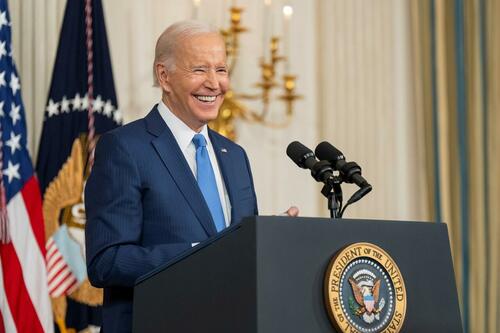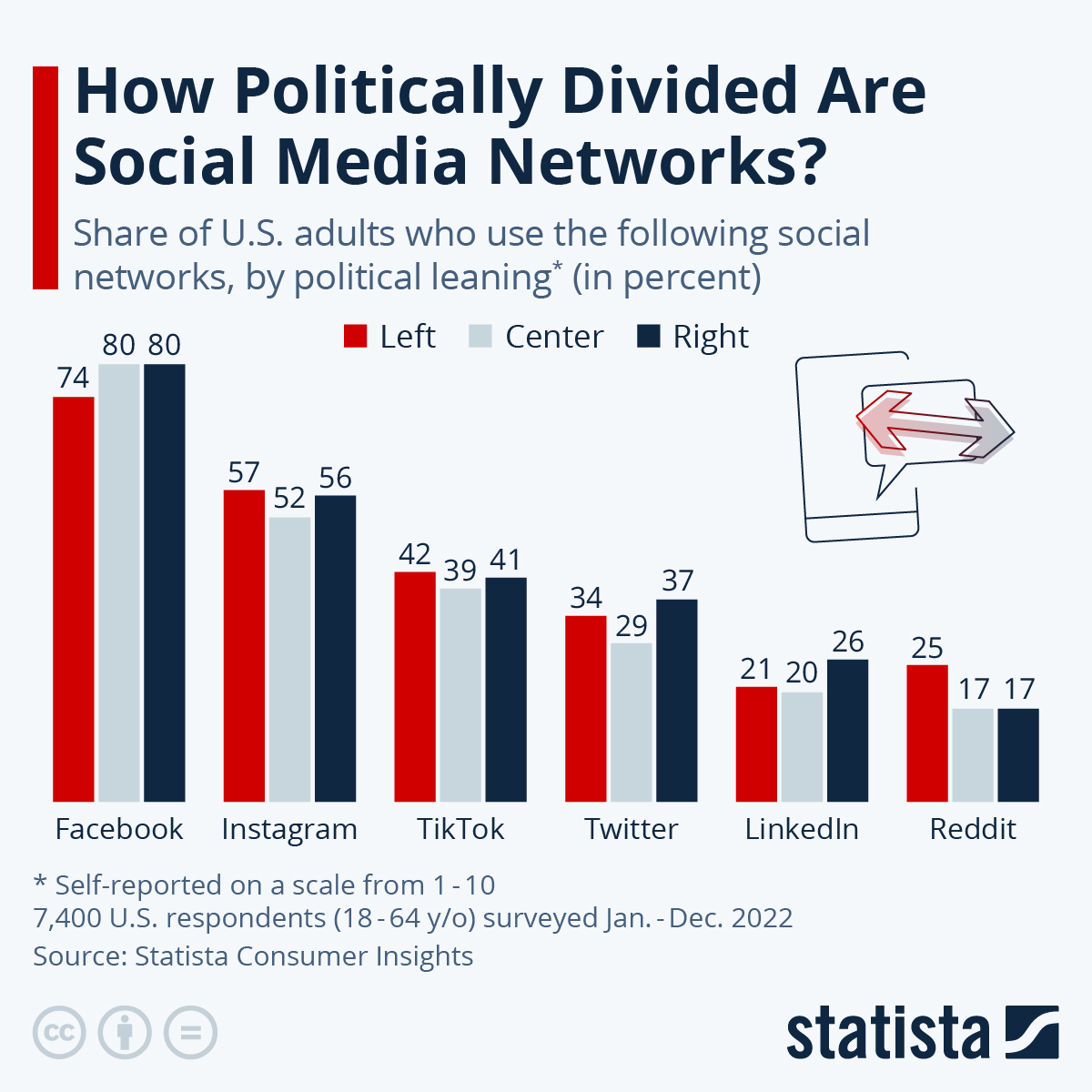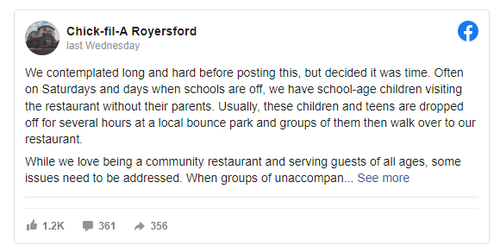In Doe v. U.N.C. Sys. (W.D.N.C.), a case challenging the expulsion of plaintiff Jacob Doe for alleged sexual assault, the court issued a quite remarkable TRO last week: It, among other things,
- required defendants “to direct all individuals”—including UNC students—”over whom they exercise control to refrain from publishing or disclosing any information concerning the Plaintiff, the disciplinary proceedings, or the outcomes of such proceedings,” and
- required defendants “to inform any media outlet, or any other third party, that receives information concerning the Plaintiff’s disciplinary outcome about the filing of this motion for a temporary restraining order and preliminary injunction, and notifying such media outlets or other third party, that they are prohibited from publishing any information concerning the Plaintiff, the disciplinary proceedings, or the outcomes of such proceedings.”
This strikes me as likely unconstitutional, because of its substantive scope, because it was entered as an ex parte TRO with no opportunity for the defendants to be heard, and because it purports to restrict the free speech rights of third parties who also had no opportunity to be heard. But when I tried to figure out why the court entered such a broad restriction, I couldn’t, because the motion for the TRO and the supporting memorandum were sealed. And when I tried to figure out the basis for the sealing, I couldn’t, because there was no official sealing order authorizing and explaining the sealing (even though the W.D.N.C. local rules seem to require such sealing orders).
I’m therefore delighted that the ACLU of N.C., representing itself and the Freedom of the Press Foundation, joined by my pro bono local counsel Mark Sigmon, representing me, (many thanks!) have just filed a motion to intervene and unseal the sealed documents. (I should note that Kristi Graunke and Samuel Davis of the ACLU of N.C. have taken the laboring oar on the drafting, and I’m delighted to be free-riding on their efforts.) Here’s the heart of the argument:
In the American judicial system, civil proceedings are “traditionally open.” Virginia Dep’t of State Police v. Washington Post, 386 F.3d 567, 580 (4th Cir. 2004). “[I]n some civil cases the public interest in access, and the salutary effects of publicity, may be as strong as, or stronger than, in most criminal cases.” Gannett Co. v. DePasquale, 443 U.S. 368, 386 n.15 (1979). Transparency is the general rule: the public’s right of access “may be abrogated only in unusual circumstances.” Stone v. Univ. of Maryland Med. Sys. Corp., 855 F.2d 178, 182 (4th Cir. 1988).
In this case, records that this Court relied upon to fix the substantive rights of the parties—and of non-parties whose constitutional rights are burdened by the temporary restraining order (TRO)—remain secret. If “unusual circumstances” exist to justify this deviation from the norm of transparency, these circumstances have not been disclosed to the public. There is no publicly available order explaining why certain judicial records are currently under seal. Accordingly, Intervenors respectfully move to unseal [the motion for the TRO and supporting memorandum, and any papers related to sealing] …. Unsealing is necessary to protect Intervenors’, and the public’s, right to “judge the product of the courts in [this] case.” Columbus–America Discovery Group v. Atlantic Mut. Ins. Co., 203 F.3d 291, 303 (4th Cir. 2000)….
[I.] Intervenors have common law and First Amendment rights to access the orders and filings in this case.
“The right of public access to documents or materials filed in a district court derives from two independent sources: the common law and the First Amendment.” Virginia Dep’t of State Police, 386 F.3d at 575. Each source provides a different level of “substantive protection.” Rushford v. New Yorker Magazine, Inc., 846 F.2d 249, 253 (4th Cir.1988). Under existing Fourth Circuit precedent, Intervenors have common law and First Amendment rights to access the requested records.
[A.] Intervenors’ common law right of access.
“The common law presumes a right of the public to inspect and copy all judicial records and documents.” Virginia Dep’t of State Police, 386 F.3d at 575 (cleaned up). “[I]t is commonsensical that judicially authored or created documents are judicial records.” In re U.S. for an Ord. Pursuant to 18 U.S.C. Section 2703(D), 707 F.3d 283, 290 (4th Cir. 2013).
So too are “documents filed with the court … if they play a role in the adjudicative process, or adjudicate substantive rights.” Plaintiff’s motion for sealing, motion for a TRO and preliminary injunction, and any supporting materials “play[ed] a role in the adjudicative process” because they “were filed with the objective of obtaining judicial action or relief.” Accordingly, “the common law presumption of access attaches” to all judicial records sought by Intervenors.
“To substantively overcome the common law presumption of access … a court must find that there is a ‘significant countervailing interest’ in support of sealing that outweighs the public’s interest in openness.” In re U.S. for an Ord. Pursuant to 18 U.S.C. Section 2703(D), 707 F.3d at 293. In performing this “common law balancing test,” courts consider “whether the records are sought for improper purposes … whether release would enhance the public’s understanding of an important historical event; and whether the public has already had access to the information contained in the records.” In re Knight Publ. Co., 743 F.2d 231, 235 (4th Cir.1984). “The party seeking to overcome the presumption bears the burden of showing some significant interest that outweighs the presumption.” Rushford, 846 F.2d at 253.
Here, Intervenors seek access to the requested motions and orders to assess this Court’s rationale for issuing the TRO and the arguments presented in support of a preliminary injunction. This information would be used for legitimate purposes relating to each intervenor’s respective professional missions, as a First Amendment scholar who publicly reports on issues relating to judicial transparency, a non-profit organization that regularly writes about and participates in legal proceedings involving press freedoms, and a non-profit organization that advocates for the constitutional rights of all North Carolinians. Release of these records would help the public understand why this Court issued a gag order which, under the First Amendment, “warrant[s] a most rigorous form of review because [it] rest[s] at the intersection of two disfavored forms of expressive limitations: prior restraints and content-based restrictions.” In re Murphy-Brown, LLC, 907 F.3d 788, 796–97 (4th Cir. 2018). Absent action to unseal these records, the public will lack access to this information.
Given that plaintiff is already proceeding under pseudonym, his interest in maintaining privacy cannot be a “significant countervailing interest” justifying sealing. Plaintiff has asserted that providing the public with access to “the underlying facts and legal claims” of this case will further the “public[‘s] interest in state activity, including activity that violates constitutional principles.” Plaintiff’s privacy interest may justify redacting portion of any records that may reveal personally identifying information about the parties. It cannot justify actions that “would conceal the basis for the court’s decision, which … is not permissible in light of the public’s … right of access to documents relied upon in support of” a decision, especially one implicating fundamental constitutional rights.
[B.] Intervenors’ First Amendment right of access.
This Court need not address Intervenors’ First Amendment rights to access the requested judicial records because plaintiff cannot meet his burden under the common law balancing test, and, as set forth infra, the local rules governing sealing have not been complied with in this case. However, should this Court disagree, Intervenors also have a First Amendment right to access the records.
While the common law right of access presumptively applies to all judicial records, “the First Amendment guarantee of access has been extended only to particular judicial records and documents.” Stone, 855 F.2d at 180. The question of what records are covered not been conclusively resolved in the Fourth Circuit. But a document becomes a judicial record when it is used to “adjudicate substantive rights.” In re U.S. for an Ord. Pursuant to 18 U.S.C. Section 2703(D), 707 F.3d at 290. Moreover, there is a long history of allowing members of the press and the public to access substantive motions in civil proceedings, see, e.g., Stone, 855 F.2d at 182, and transparency at this stage “plays a significant positive role in the functioning of” the judicial system. Press-Enter. Co. v. Superior Ct. of California for Riverside Cnty., 478 U.S. 1, 8 (1986).
“[S]everal circuits, as well as district courts within the Fourth Circuit, have held” that the First Amendment right applies to “documents filed in conjunction with a motion for preliminary injunction.” Courts have held the same with respect to documents filed in conjunction with a motion for a TRO. Because the Court relied upon plaintiff’s TRO and preliminary injunction in issuing an order fixing the parties’ substantive rights, the First Amendment right of access is implicated.
At a minimum, the First Amendment right of access applies when a litigant’s invocation of judicial authority may result in a substantial burden on another person’s constitutional rights. “[P]reliminary injunctions are extraordinary remedies involving the exercise of very far-reaching power to be granted only sparingly and in limited circumstances.” MicroStrategy Inc. v. Motorola, Inc., 245 F.3d 335, 339 (4th Cir. 2001). And “[t]he loss of First Amendment freedoms, for even minimal periods of time, unquestionably constitutes irreparable injury.” Legend Night Club v. Miller, 637 F.3d 291, 302 (4th Cir. 2011). When a litigant invites a court to exercise an extraordinary judicial power in a manner that may work an irreparable injury, those who would be burdened—and all members of the public—have a right to know why such sweeping restrictions are justified.
Records implicating the First Amendment right of access must be made publicly accessible “unless there is a compelling … interest” in abrogating the right and “the denial of the right of access is narrowly tailored to serve that interest.” There is no compelling interest in denying access to the requested records here and, even if there were, wholesale sealing is not “narrowly tailored” in light of other mechanisms available to protect plaintiff’s privacy, including allowing him to proceed under pseudonym and redacting personally identifiable information.
[II.] Intervenors did not receive the notice and opportunity to object to sealing required under Fourth Circuit precedent and this Court’s local rules.
Before shutting their doors to the public, courts must adhere to a set of procedural safeguards designed to give members of the public a chance to vindicate their access rights. Such safeguards were not applied in this case.
In the Fourth Circuit, courts must “(1) provide public notice of the request to seal and allow interested parties a reasonable opportunity to object, (2) consider less drastic alternatives to sealing the documents, and (3) provide specific reasons and factual findings supporting its decision to seal the documents and for rejecting the alternatives.” Ashcraft v. Conoco, Inc., 218 F.3d 288, 302 (4th Cir. 2000). Similarly, LCvR 6.1 requires parties to support a motion to seal with “[a] non-confidential description of the material sought to be sealed” and “[a] statement indicating why sealing is necessary and why there are no alternatives to filing under seal,” LCvR 6.1(c)(1)-(2), and a court must “state its reasons with findings supporting its decision [to seal]” and “specify whether the sealing is temporary or permanent,” LCvR 6.1(f).
In this case, these procedures were not followed. On 22 February 2023, this Court issued a TRO, which it granted “on the Plaintiff’s Ex Parte Motion for a Temporary Restraining Order and Motion for a Preliminary Injunction. [Doc 4].” Plaintiff’s motion and “Memorandum in Support [of] Plaintiff’s Motion for a Temporary Restraining Order and Preliminary Injunction,” which are referenced in plaintiff’s certification of notice, are not available on the public docket as of the filing of this motion. Nor is there a publicly available motion to seal or an order from this Court allowing sealing.
The public docket does contain plaintiff’s complaint and “Motion for Leave to Proceed Under Pseudonym,” along with a proposed order, a supporting memorandum, and a declaration of counsel. These materials solely address plaintiff’s desire to proceed pseudonymously, and to allow his accusers to proceed in the same fashion. Nevertheless, plaintiff appears to have proceeded in secret to obtain an order substantially burdening the constitutional rights of Intervenors and other members of the public.
In his request to proceed as Jacob Doe, plaintiff argued it would be “sufficient that the underlying facts and legal claims are public.” Indeed, plaintiff’s complaint provides his version of the “underlying facts and legal claims” at great and often explicit length. By plaintiff’s own terms, there is no apparent justification for allowing the “facts and legal claims” supporting his request for a TRO and preliminary injunction to remain secret. At a minimum, this Court should provide Intervenors and other members of the public notice and an opportunity to be heard, as required under Fourth Circuit precedent and this Court’s own rules.
[Conclusion]
“Any step that withdraws an element of the judicial process from public view makes the ensuing decision look more like a fiat and requires rigorous justification.” Doe v. Pub. Citizen, 749 F.3d 246, 266 (4th Cir. 2014). Intervenors, and the public, are entitled to a justification for this Court’s TRO or, at a minimum, an explanation for why it is permissible to deny them one. Accordingly, Intervenors respectfully request that this Court unseal the requested judicial records.
The post ACLU of N.C., Freedom of the Press Foundation, and I Are Challenging Sealing of Documents Related to Gag Order appeared first on Reason.com.
from Latest https://ift.tt/JEpxrC8
via IFTTT







